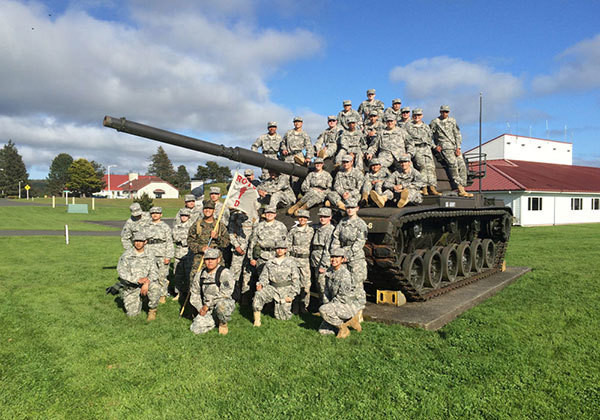U.S. Army Junior ROTC

Citizens of Tomorrow
Are you inspired by our armed forces? Do you love teamwork? U.S. Army Junior Reserve Officers’ Training Corps (JROTC) is a program that’s about more than just service, it’s also about becoming the kind of person you want to be: strong, capable, and a leader.
You’ll learn about everything from leadership and global awareness to health and wellness and U.S. history. Whether or not you’re headed for service in the military, gain the life skills you need for success. U.S. Army JROTC is a congressionally-mandated program with the mission “Motivating Young People to be Better Citizens.” You’ll learn the importance of lifelong learning, communication, accountability, good citizenship, respectful treatment of others, and critical thinking techniques. There is no military obligation after the Army JROTC program. Let’s do this!


